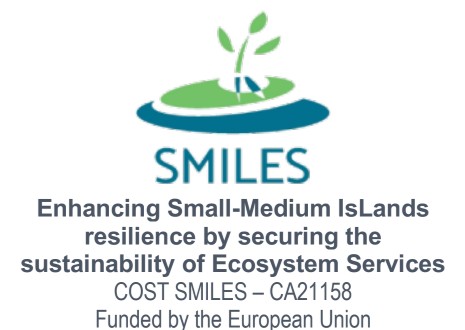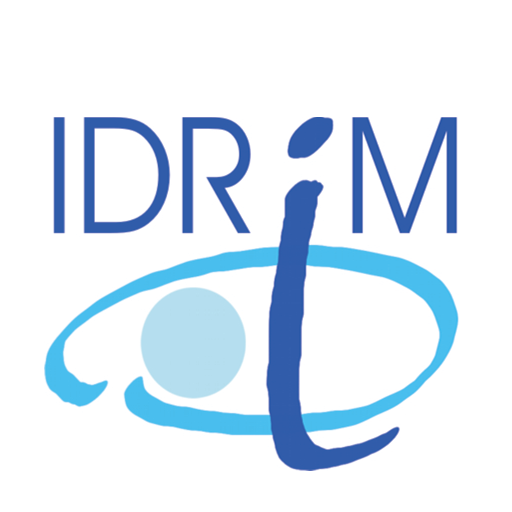These are stand-alone events, such as training schools and workshops, that relate to the Conference
CALL FOR APPLICATIONS
Training School on enhancing the knowledge base of ecosystem services on small and medium island environments
27–28 September 2025 | Samos, Greece
Pre-conference event, IDRiM2025

Are you engaged in island-relevant research or policy and eager to explore interdisciplinary approaches to sustainability and disaster risk reduction? Apply now to join a dynamic 2-day Summer Training School, organized under the SMILES COST Action and held in conjunction with IDRiM2025. This training offers a platform for hands-on learning and exchange on the role of ecosystem services (ES) in small and medium islands (SMIs)—unique environments that provide critical ecological, cultural, and economic benefits both locally and beyond. Participants will be introduced to core theoretical foundations, practical tools, and field-based applications of ES assessments. The training aims to explore how the ES concept can be applied to safeguard critical ecological, cultural, and economic benefits through integrated, cross-disciplinary methods in island contexts.
Program Overview
The training will combine lectures, hands-on tools, fieldwork, and collaborative workshops. Sessions will be led by international experts and feature practical applications of ES assessment methods and mapping tools.
The training topics will include:
● ES frameworks in small-medium islands
● Islands’ values of nature and their contributions to people
● Mapping and assessing methods for island ES
● Hands-on training of ES mapping tools (e.g. InVEST and PPGIS)
● Fieldwork for data collection in island environments
Eligibility Criteria
The application is open to:
● Early-career researchers (at least MSc level, and preferably with a maximum of 10 years’ experience post-degree) in environmental sciences, geography, ecology, and sustainability studies.
● Policy-makers and practitioners working on island conservation and management
● NGOs, stakeholders, and community representatives from island regions.
Applicants:
● Must be engaged in island-relevant research or practice
● No prior experience with ecosystem services is required
● Must have some prior knowledge of basic spatial data analysis and GIS
● Ensure geographic diversity is represented
Timeline
● Opening of applications: 22 July 2025
● Application deadline: 16 August 2025
● Notification of selected participants: 23 August 2025
How to Apply
Interested candidates should submit:
● A brief CV (max. 2 pages)
● A letter of motivation outlining their island-related work and interest in the training (max. 300 words) Submit your application by 16 August 2025 through the online form here.
Participation Details
● The training will take place in person in Samos, Greece, on 27–28 September 2025.
● Participants are required to bring their own laptop for hands-on exercises.
● Financial support is available for 15-20 selected participants for travelling to the venue and accommodation for the two days of the training school.
● IDRiM2025 Conference participants are welcome to apply and attend the training free of charge. All accepted participants will have full access to the training sessions, materials, and certificate of participation. For further information, contact Dr Evangelia Drakou (e.drakou@hua.gr) & Dr Roxanne Lorilla (rslorilla@hua.gr)

